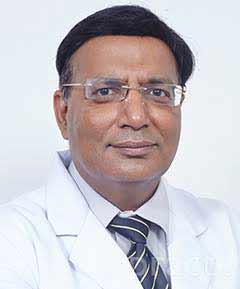The World Health Organization (WHO) has acknowledged ‘evidence emerging’ of the airborne spread of the deadly coronavirus. This after scientists from several countries urged the global body to update its guidance on how the respiratory disease passes between people. “We have been talking about the possibility of airborne transmission and aerosol transmission as one of the modes of transmission of COVID-19,” said Maria Van Kerkhove, technical lead on the COVID-19 pandemic at the WHO.
When we speak, sing or shout, there are a lot of droplets that come out of our mouth. The larger ones fall on to the ground within 3-6 feet. But the smaller droplets can stay in the air for a longer time and therefore could be inhaled by other people who are in a closed environment.

According to Dr Ajay Aggarwal – Director, Internal Medicine Fortis Hospital, Noida – earlier too there were doubts that airborne transmission of COVID-19 is possible.
ALSO READ | India Third Worst-Affected By COVID-19, Govt Say No Community Transmission, Here’s All You Need To Know
“WHO has said that airborne transmission of COVID-19 virus is also possible. This means, the virus stays in the air and can infect others. The announcement is important because earlier we thought that the virus is a heavier particle and falls on the ground within the radius of six and therefore can be transmitted to people in close contact or from the surface where it falls,” Dr Aggarwal said.
“This means that if a COVID-19 positive person coughs or sneezes in a close environment, another person present in the area can get infected without even coming in close contact of the person,” he added.
In other words, a single person can infect a lot of people in places like offices, metro trains, or any other overcrowded place. This means the R0 (pronounced ‘R-zero’) of the virus will increase significantly. This tells the average number of people that one coronavirus infected person will pass the virus to.
Dr Aggarwal feels that people now need to be extra careful as we are already in the unlock phase and the probability of being an infected person is high.
“As we are now in the unlock phase, we need to be extra careful. We should wear our mask at all places, use sanitizers, try following social distancing at all places and most important thing, avoid places that can get overcrowded like malls, restaurants, theatres.